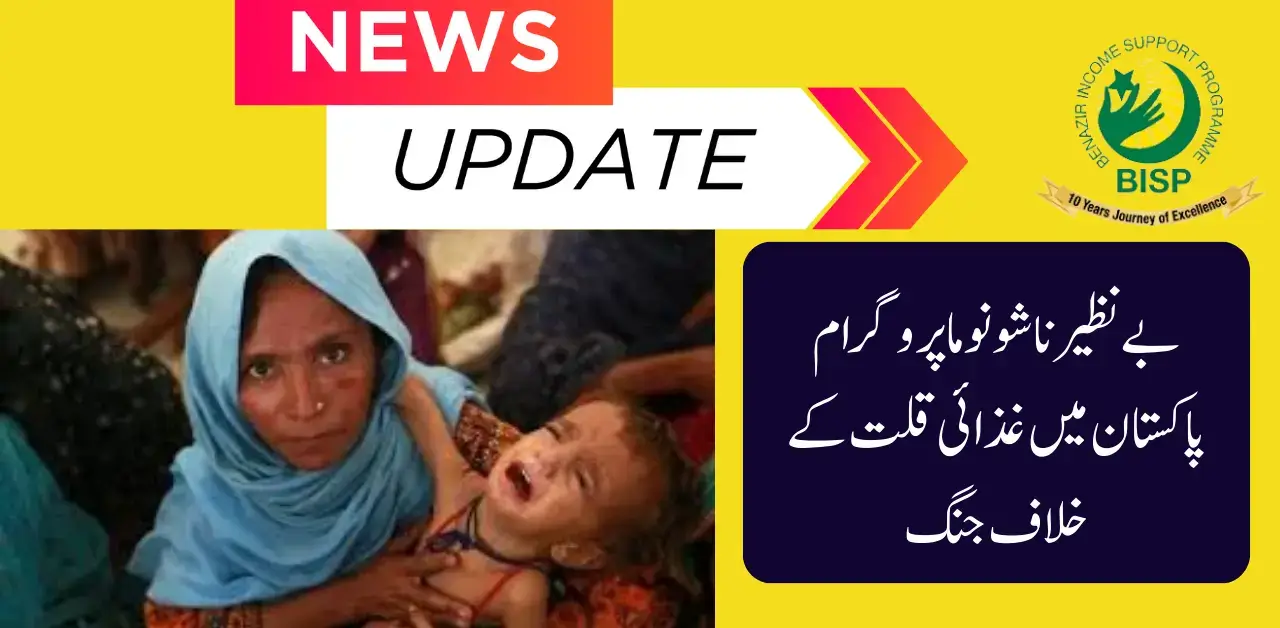The Benazir Nashonuma Program is a critical initiative introduced by the Government of Pakistan in August 2020. Its primary objective is to combat stunting among pregnant and lactating women (PLW) and children under two years of age. This program, implemented in collaboration with the World Food Programme (WFP) and the Benazir Income Support Programme (BISP), focuses on addressing malnutrition and enhancing maternal and child health nationwide.
Overview of the Benazir Nashonuma Program
The Benazir Nashonuma Program operates on a straightforward principle. Pregnant and lactating women who attend regular antenatal health checks, participate in awareness sessions, consume specialized nutritious food (SNF), and adhere to immunization schedules receive additional cash assistance. This financial aid amounts to PKR 2,000 per quarter for pregnant women and PKR 2,500 per quarter for girl children. The program aims to supplement the existing benefits provided under the BISP framework, thereby enhancing its overall impact.
Inception and Collaborative Efforts
Launched under the auspices of the BISP, the Benazir Nashonuma Program demonstrates the government’s dedication to tackling the multifaceted issues of malnutrition and maternal and child health. By partnering with the WFP, an organization renowned for its expertise in food assistance and nutrition programs, the initiative harnesses both technical know-how and logistical capabilities to ensure effective implementation and widespread outreach.
Implementation Process
The program’s success is rooted in its inclusive approach, targeting both pregnant women and children under two years old. To enroll, beneficiaries must meet specific criteria, including registration with the BISP and compliance with program requirements. Payments are disbursed quarterly, with additional provisions for transportation expenses to facilitate access to healthcare facilities. This holistic approach ensures that beneficiaries receive both financial support and essential healthcare services.
Benefits and Impact
The impact of the Benazir Nashonuma Program extends well beyond monetary assistance. By promoting regular health check-ups, encouraging maternal nutrition, and facilitating access to essential healthcare services, the initiative contributes to improved health outcomes for both mothers and children. Addressing the root causes of stunting, the program lays the groundwork for long-term developmental gains, positively affecting future generations.
How to Apply for BISP Online
For individuals seeking to avail themselves of BISP benefits, the application process is now more straightforward than ever. Online registration, accessible through the official BISP website, streamlines the process and ensures greater transparency. Eligibility criteria, including income thresholds and citizenship requirements, are clearly outlined, enabling prospective beneficiaries to determine their eligibility with ease.
Latest Updates and Future Prospects
As of October 2023, the Benazir Nashonuma Program is operational in 45 districts across Pakistan, reaching over 1.1 million beneficiaries. Recent announcements regarding increased government assistance highlight the program’s ongoing relevance and impact, signaling a renewed commitment to addressing the challenges of malnutrition and maternal and child health. These updates reflect the program’s dynamic nature and its adaptability to emerging needs.
Conclusion
In summary, the Benazir Nashonuma Program represents a significant advancement in the government’s efforts to combat malnutrition and promote maternal and child health. By leveraging cash transfers as incentives for behavior change and investing in essential healthcare services, the initiative holds immense promise for achieving sustainable development outcomes. Moving forward, addressing implementation challenges and scaling up the program will be crucial for ensuring its long-term success and expanding its positive impact on Pakistani society.
